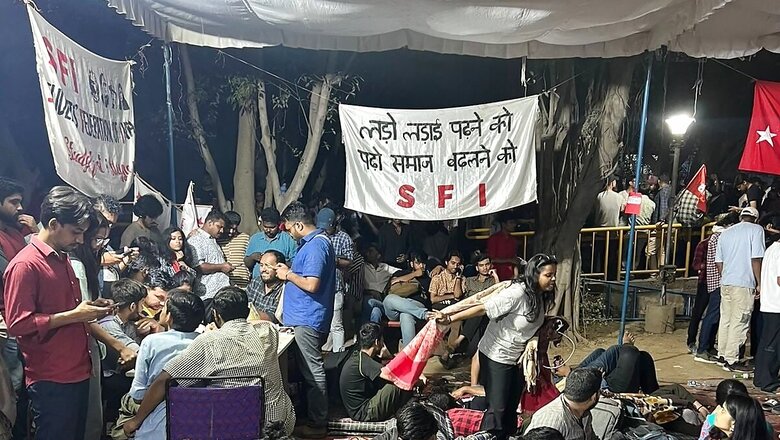
views
Standing firm in its stronghold, the United Left bagged three major positions in the central panel in the Jawaharlal Nehru University Student Union (JNUSU) polls, defeating the RSS-backed Akhil Bharatiya Vidyarthi Parishad (ABVP), its major opponent, in a comfortable victory, results to which were announced late on Sunday evening. The fourth candidate from Birsa Ambedkar Phule Students Association (BAPSA), who was elected to the post of general secretary, is also a Left-supported candidate.
Re-establishing its dominance in the university, the Left alliance stomped on the hopes of the ABVP, which during the initial trends emerged as the leading party in all four seats, only to be later giving way to the Red flagbearers, as the counting progressed.
The first few rounds of counting showing ABVP ahead of the Left alliance threw a surprise as well as speculations of a saffron sweep, which if it had been the case would have been the biggest development in several decades in a varsity where Left-leaning communist parties have been in the central panel for the longest time while the right wing has supposedly won only once since the polls are being contested.
JNUSU polls were held after a gap of four years owing to the pandemic-induced lockdown, and later, the process of PhD admissions. The last student body election here was held in 2019 when it was a Left sweep on all four seats. The ABVP, which has had a higher vote share in the student body polls since 2015 had been hoping of bagging some of the major seats this time on the back of new voters.
Post-2015, the Left parties such as the Students’ Federation of India (SFI), All India Students’ Association (AISA), Democratic Students Federation (DSF), and All India Students’ Federation (AISF), have been contesting the polls as one unit under the umbrella of United Left alliance.
A Dalit president in 27 years
According to JNU’s Chairperson of the Election Committee (CEC), a total of 5,656 ballots were counted to the final tally. The United Left’s candidate Dhananjay, a Dalit, was elected as the president of the students’ union in at least 27 years, bagged a total of 2598 votes, defeating ABVP’s Umesh Chandra Ajmeera by 922 votes. A PhD scholar from the School of Arts and Aesthetics, he hails from Bihar and is the son of a retired policeman.
The vice-president’s post was also bagged by Left-SFI’s Avijit Ghosh, gaining a total of 2409 votes, beating ABVP’s Deepika Sharma by 927 votes. United left-supported BAPSA candidate Priyanshi Arya won by 926 votes while Left-AISA’s Mohammad Sajid won the joint secretary’s position by 508 votes.
The United Left has had funds cut for infrastructural projects and rampant privatisation on its agenda. Dhananjay in his presidential speech ahead of the polls had spoken essentially about the livelihood crisis being faced by landless labourers in many rural parts of the country, including states like Bihar, Jharkhand, and West Bengal.
However, the trailing ABVP emerged as the single largest party in the student body polls with a much higher vote share this time as compared to previous years.
“We believe in the fact that the three different manifestoes — Women, Science and Combined — released by us with real issues like women safety, timely release of fellowships and completion of hostel buildings, among others on agenda resonated largely with the students and our vote share has only increased. Even though we lost, we will keep working on the issues faced by students, as we have them on our agenda,” said Ambuj Mishra, national media co-convener, ABVP, and a PhD scholar at JNU.
This was the first time that the ABVP came out with three different manifestoes in JNU, something it had first experimented with in the Delhi University Students’ Union (DUSU) polls in 2019. “It had garnered good results for us in DU. We will keep working on the issues highlighted in our manifestos,” Mishra added.












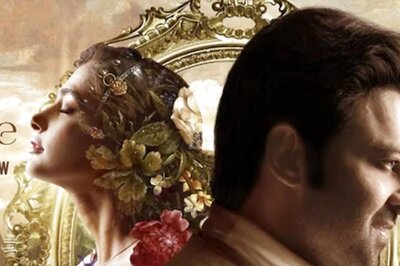
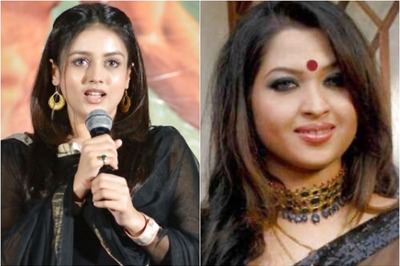

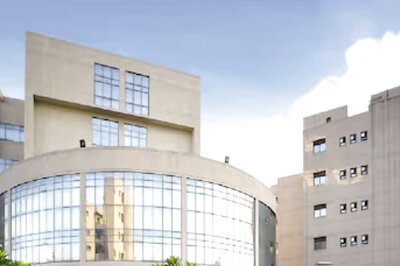


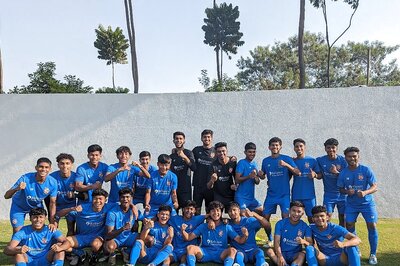
Comments
0 comment